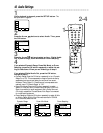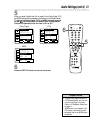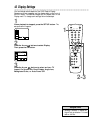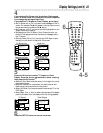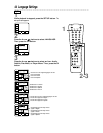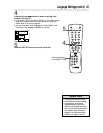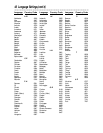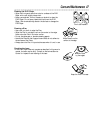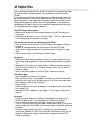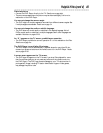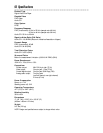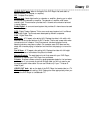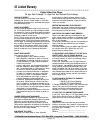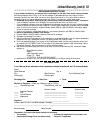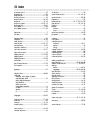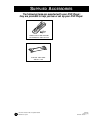
AUDIO OUT Jacks: Jacks on the back of the DVD Player that send audio to
another system (TV, decoder, or amplifier).
CD
: Compact Disc (audio)
Coaxial jack:
Sends digital audio to a decoder or amplifier, allowing you to adjust
the volume at the decoder or amplifier. The decoder or amplifier must have a
coaxial in jack. This connection provides the 5.1 channel surround sound as heard
in movie theaters.
Dolby Digital:
A surround sound system that provides 5.1 channel sound as used
in movie theaters.
DTS:
Digital Theater Systems. This is a surround sound system, but it is different
from Dolby Digital. The formats were developed by different companies.
DVD
: Digital Video Disc.
Letterbox:
A TV aspect ratio setting (4:3). Displays the video in full-width, with
black bars at the top and bottom of the TV screen. This format is used often when
you see a movie in a theater. If the Disc does not include a letterbox format ,
selecting Letterbox may have no effect. (For example, some DVD discs are two-
sided, with one side playing in Letterbox and the other side playing in a normal for-
mat.)
Pan & Scan:
A TV aspect ratio setting (4:3). Displays the video with full-height
picture, with one or both sides of the picture trimmed.
Remote Control:
The small electronic unit that came with your DVD Player;
allows you to operate your DVD Player from a distance.
S-Video:
Produces a clearer picture by sending separate signals for the luminance
and the color. If you connect an optional S-Video cable, you will not need to use
the supplied yellow video cable. You can use S-Video only if your TV has an S-
Video In jack.
VIDEO OUT Jack:
Jack on the back of the DVD Player that sends video to a TV.
Wide:
A TV aspect ratio setting (16:9). Displays the video appropriately when you
connect the DVD Player to a widescreen TV.
Glossary 51



